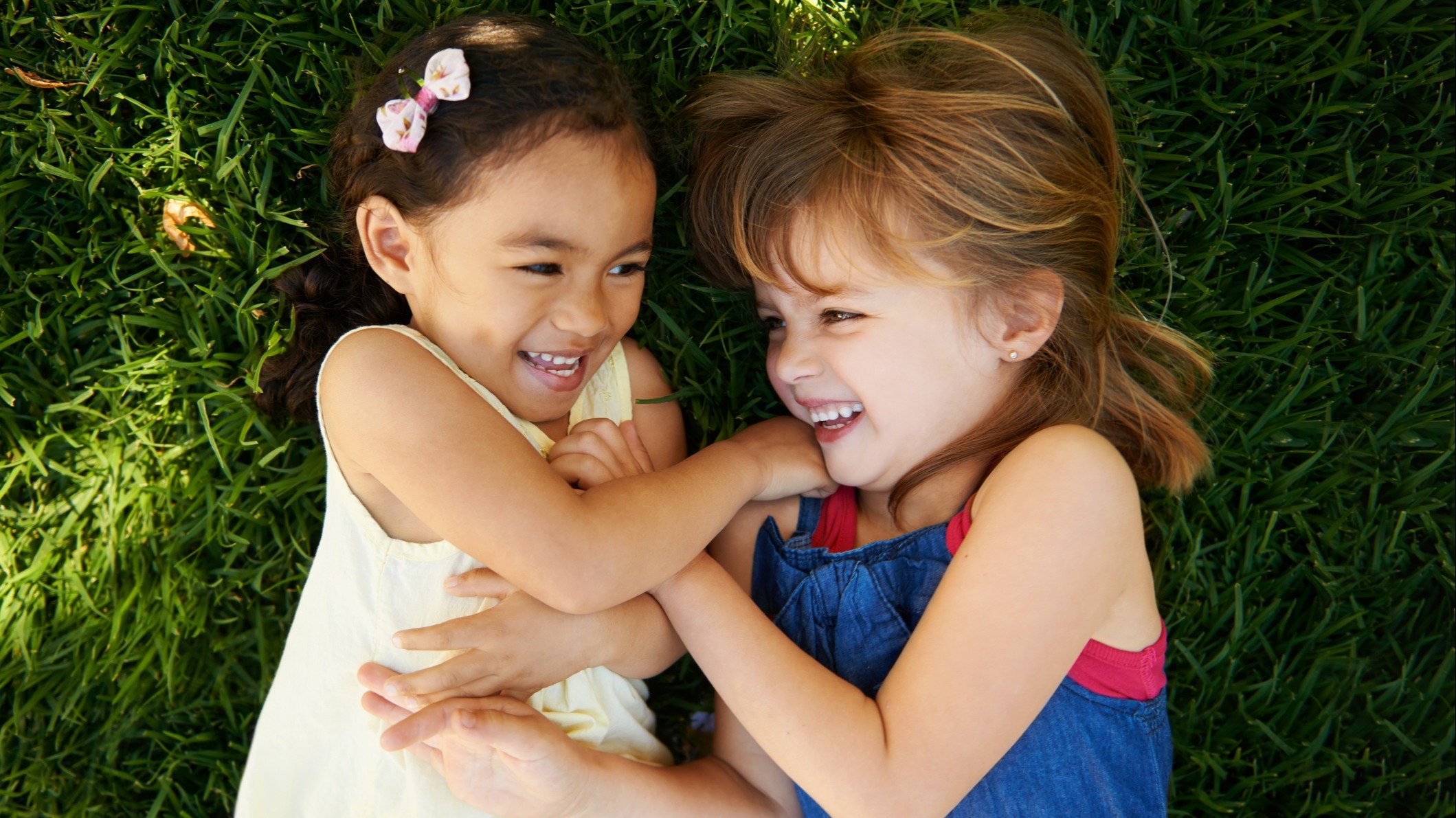
Your 10-year-old daughter comes home from school and tells you that a boy held her down and poked her as she screamed for him to stop. The more she shouted, the more aggressive the boy became. And to top it all off he was laughing the whole time. So were the kids who were watching. For that matter, your daughter was laughing, too, just not voluntarily. Rather it was a reflexive reaction. As the boy touched her more aggressively, she ended up crying and gasping for air. She almost wet her pants.
Your daughter was being tickled.
More from Mom.com: How To Talk to Your Child About Bullying
Is it OK that the boy did this to her? Absolutely not! So why is it OK for you to “tickle” your child and call it fun? Well, actually, it isn’t.
I realize that there is a line here. There is a difference between a child being gently tickled by a loving, aware parent without ever feeling out of control and the kind of abuse I’m talking about. In fact, some researchers believe that light tickling can be a safe physical bonding experience for parent and child. I also have friends who report that their young kids love playing a tickling game with them. But the children get to say how much and when to stop. The young people are fully in charge of what happens to their bodies, as they should be.
That’s very different from the “fun-loving” parent, uncle, cousin, sibling or friend holding a child down and deriving almost sadistic pleasure from watching him squirm and struggle. At that point, the word tickling is just a euphemism for domination and abuse. And the laughter—that the child emits uncontrollably—somehow condones it. As in, Look at him laugh! He must be having fun!
If you have no idea what I’m talking about then you were most likely never on the receiving end of this kind of tickling. You were never held under a blanket while your older cousins tickled you until you thought you would suffocate. You were never pinned down by one sibling while the other dug his fingers into your armpits, leaving you breathless and, eventually, in tears.
Just fun? I don’t think so.
In its most aggressive form, tickling is a form of torture. To call it anything else is ignoring the science that shows, in most cases, the person being aggressively tickled is not having fun at all.
If you still aren’t sure, Google how the Nazi prison guards tickled prisoners in concentration camps in World War II. Purportedly other cultures have also used tickling as a form of extreme torture.
When my son and daughter were babies, I found plenty of ways to physically bond with them that did not involve tickling. When they were a little older, we loved to wrestle, but I always made sure they were fully in charge of the game, in which I would always end up getting pinned down.
But whenever a well-meaning adult went at one of my child’s armpits with wiggling, outstretched fingers I would stop them immediately.
“It’s just a little tickling,” the adult would invariably say.
Fine. But it’s also just a tad too easy to poke a little too hard, to want to elicit a stronger response from the child. In other words, it’s easy to cross the line from playful to hurtful. And since every child has a different response to being tickled, how about you just don’t do it at all.
Although it never happened on my watch, my daughter has still been aggressively tickled. She reports that she hates it, as do most kids. In fact, ask your own children how they feel about it. Chances are they don’t like to feel physically out of control while some bigger person pokes and prods them against their will. But then again, do you?




